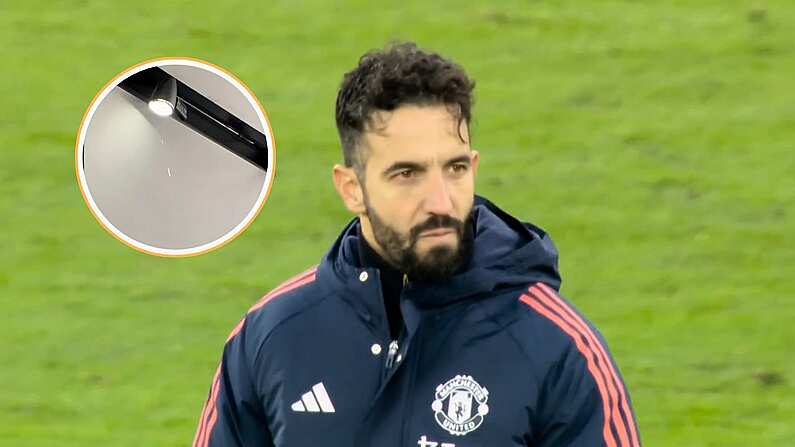Roy Hodgson's press conference on Tuesday was horrific viewing in the most satisfying way possible. A thoroughly decent human being may take stock and suggest that the public dressing down is not the way to go. Let the man fall on his sword in private.
Of course, the rest of us aren't quite so accommodating. What's the point in a someone falling on their sword if there's no one there to watch it happen? And such, presumably with the FA's PR gun to his head, Roy Hodgson stepped in front of the waiting English media and the feeding frenzy began.
While Hodgson's assertion that 'I don't know what I'm doing here' may be the line that everyone remembers, the FA's CEO, Martin Glenn, reiterating the fact that he's no 'football expert' won't be far behind. While Hodgson may have been served up on a platter, it was the English football establishment that once again, ended up looking worst. Which leads us on to the clock.
Writing in the Guardian today, Daniel Taylor, summed up the hubris of English football rather well.
It is difficult not to marvel at the pomposity of a nation that has a clock on the wall of its football operation, St George’s Park, noting the day England apparently win the 2022 World Cup.
Every time it tournament failure arrives, it appears that they've finally learned. There's no confidence this time around, just planning, dedication, hard work. And yet, they're fully expecting to win the 2022 World Cup.
Inevitably, tournament football rolls around, quiet confidence turns into expectation and the cycle starts all over again. A manager gets savaged, the FA talks about a plan and, just like that, Gareth Southgate is the manager all of a sudden. The clock is the perfect summary of it all.
However, perhaps we're being a bit harsh. This is not the first time that clock has been mentioned.
The Times' Oliver Kay mentioned it in the build up to Euro 2016 and with the knowledge of what was to come, the clock didn't sound like a such a bad idea.
In the coaches’ room at St George’s Park, a clock ticks down towards December 18 2022, the date when — absurdly, but that is another story — the World Cup final will be played in Qatar. That has been the FA’s ultimate red-letter day since Greg Dyke, the chairman, laid out his vision to turn England into world champions, a plan that he unveiled in 2013 amid concerns that the national team were going from bad to worse.
A laudable ambition, it has undoubtedly helped, belatedly, to bring a focus on long-term football strategy at the FA.
Hindsight is 20-20 of course but, at times like this, it's difficult not to go along with Taylor's assessment of that clock. Pomposity is a charge that has been levelled at English football over and over again and, with the clock still ticking down to December 2022, it's unlikely that another tournament failure is going to do anything to damage the feeling in the upper echelons of English football that a world title is an achievable aim in the space of six years.










